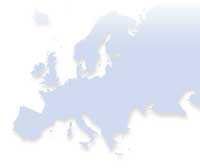El próximo mes de Mayo (del 4 al 25 de Mayo del 2011) se celebrará un curso dirigido a los Catedráticos y Profesores de Secundaria de las áreas científico-técnicas que tiene como principal motivación el actualizar las enseñanzas de estas disciplinas a la Ciencia del Siglo XXI. El curso se titula «Supercomputación en las aulas«.
Archivo del Autor: Alija
Preparing high-school physics teachers
Preparing high-school physics teachers
Theodore Hodapp, Jack Hehn, and Warren Hein
Phys. Today 62, 40 (2009)
http://dx.doi.org/10.1063/1.3086101
High-school teachers are one of the most important factors in developing the science and technology workforce of the future. Institutions of higher learning in the US will need to dramatically increase the number of high-school physics teachers they educate if every high-school student who wants to take a physics course is to have access to a highly qualified teacher. The responsibility for that teacher preparation cannot be left solely to education departments or schools of education; we physicists must work with our colleagues in education to address the significant shortage of qualified physics teachers.
Many of the more than 23 000 US high-school physics teachers are not adequately prepared to teach the subject. Only one-third of them, for example, majored in physics or physics education. Poor teacher preparation denies students access to a quality education in the physical sciences. Moreover, students without access to a good high-school physics course are often unprepared for introductory college physics. Physics once attracted the best undergraduates, but now other options seem more attractive. Quantitative indicators are down too. Physics majors now represent only about 1.4% of all science and math undergraduates; 40 years ago the number was 4%.
To improve physics teacher education, the American Physical Society (APS), the American Institute of Physics (AIP), and the American Association of Physics Teachers (AAPT) jointly created the Physics Teacher Education Coalition (http://www.phystec.org) in 1999. Funded primarily by NSF and the APS 21st Century Campaign, PhysTEC has been working closely with about a dozen colleges and universities—and more broadly with a larger coalition of institutions—to identify and disseminate effective practices and innovative methods and to advocate for an enhanced role of physics departments in the education of future teachers.
The number of highly qualified teachers educated at PhysTEC institutions has substantially increased over the past eight years. From our experience in PhysTEC and from visits to successful programs around the country, we are excited to report a number of ideas for helping physics departments to improve the education of future teachers. We include examples and offer suggestions for direct action.
Artículo completo en: http://link.aip.org/journals/doc/PHTOAD-ft/vol_62/iss_2/40_1.shtml
Podcasts sobre Ciencia
Internet es una estupenda fuente de información, pero a veces esa cantidad increíble de contenidos puede resultar abrumadora ¿Por dónde empezamos, entonces, una búsqueda de noticias sobre temas científicos? En cada número de Science in School, vamos a sugerir diversas páginas web que pueden serte útiles.
Si buscas material sobre temas como las «células madre» o la «materia oscura» para usar en clase, o quieres estar al corriente de los últimos descubrimientos científicos, los podcast pueden ser la mejor solución. Te puedes suscribir, gratuitamente, a estos programas de radio en la red, descargar automáticamente cada nuevo episodio, y escucharlos cuando y donde quieras: camino a casa, en el gimnasio, en el parque….
Más información en Science in School.
¿Cuánto saben, en realidad, de ciencia y tecnología los europeos?
Todo lo que los europeos realmente creen (y lo que saben) sobre ciencia y tecnología
Fuente: Science in School
Traducido por Ramón Plo
 |
¿Cuánto saben, en realidad, de ciencia y tecnología los europeos? ¿Cuál es su opinión sobre estos temas? ¿Acaso despiertan su interés? Russ Hodge, del Laboratorio Europeo de Biología Molecular analiza los resultados de una encuesta del Eurobarómetro. |
